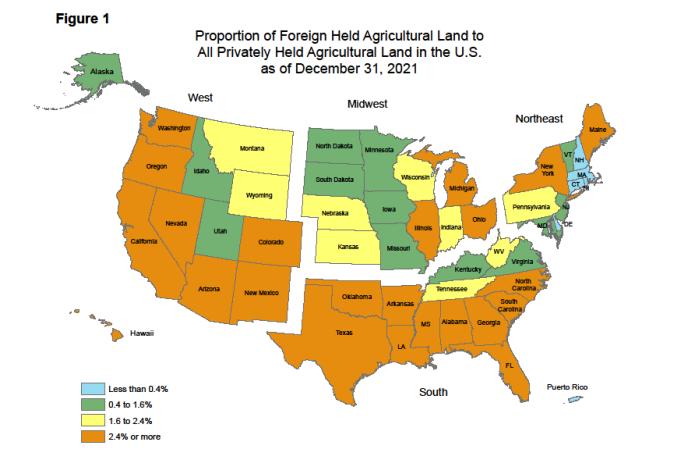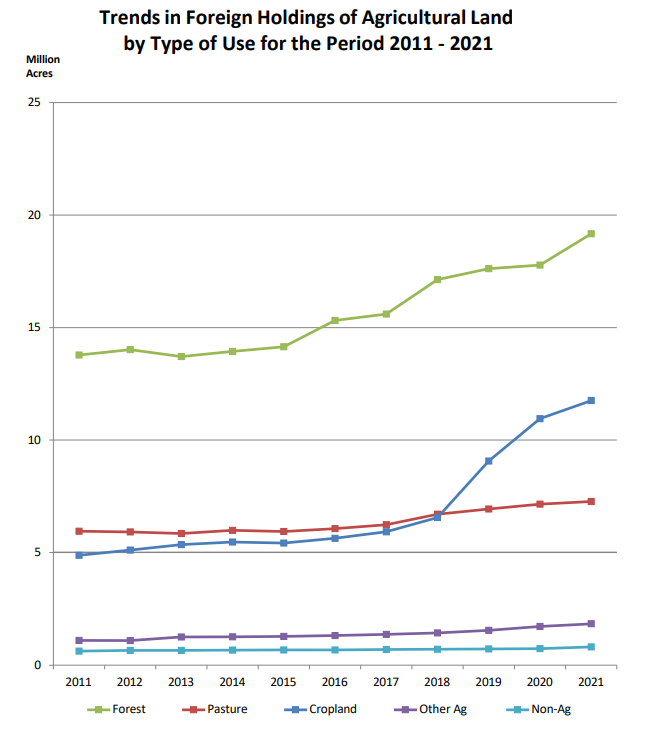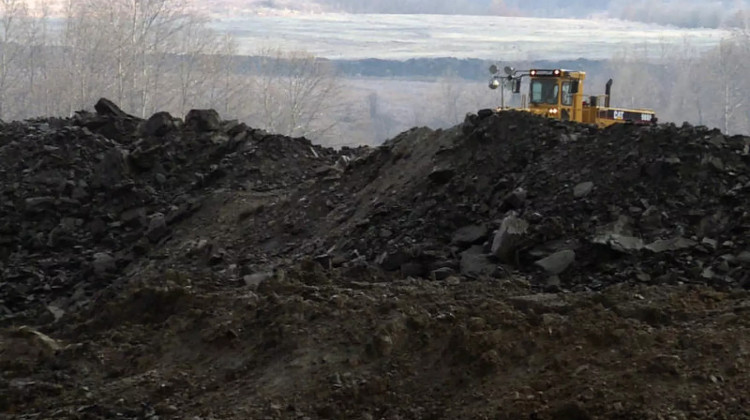
Indiana Senate Bill 388, titled Foreign gifts and ownership of agricultural land, passed the Senate in a 49-to-1 vote and the House unanimously.
Devan Ridgway - WFIU/WTIUEarlier this year, Americans watched as a high-altitude balloon owned by China floated above the country from coast to coast.
When it was shot down off the coast of South Carolina, U.S. officials stated the balloon carried intelligence gathering equipment.
And despite President Biden’s statements that the incident was unintentional and “embarrassing for Chinese authorities,” having what many view as an adversary in domestic airspace riled state legislatures.

In response, a rash of new laws aimed at limiting foreign land ownership from countries such as China popped up across the nation.
According to the latest report from the Agriculture Foreign Investment Disclosure Act, 2.2 percent of Indiana land is held by foreign entities. That’s about 434,000 acres of land. Nationally, 3.1 percent of all agricultural land is held by foreign entities, with China making up 1 percent of that figure.

See the full report here.
Micah Brown, a staff attorney at the National Agricultural law center, said that this isn’t the first time we’ve seen such laws aimed at stemming foreign land ownership.
“This issue has popped up at different times in our nation's history, through different political flashpoints that was going on in the nation at that time,” he said. “This is just the most recent political flashpoint.”
In 2021, a U.S. subsidiary of the Chinese Guanghui Energy Company began the process of purchasing 140,000 acres of land in Texas 70 miles from Laughlin Air Force Base. The fact that Guanghui’s owner reportedly has ties to the Chinese Communist Party alarmed officials. In North Dakotaarted proposing legislation in that 2021 period,” he said. “And from 2021 to 2022, we had 12 states propose some kind of measure.”
Indiana was the first state to enact a new law during that period. Now, 35 states have proposed their own legislation to limit foreign land ownership.
Legislators have a popular phrase as to why these laws are so important.
“Food security is national security,” Brown said. “A lot of these proponents of the measures are saying ‘this is a national security measure.’ And that's kind of the underlying reason for proposing these measures.”

But what do these laws accomplish? Indiana Senate Bill 388, titled ‘Foreign gifts and ownership of agricultural land,’ passed the Senate by a 49-1 vote and the House unanimously.
Senator Jean Leising, who authored the bill along with Senators Mark Messmer and James Tomes, said they passed the law to protect agricultural land from those who might not have U.S. interests in mind.
“Agriculture is a $35 billion industry in Indiana annually,” she said. “And we have to make sure that we don't put that big industry in jeopardy. Plus, it’s our food supply as well.”
The law prohibits foreign entities from owning land in Indiana, with exceptions.
The law does not apply to land used for research or experimental purposes. It also allows foreign entities to own up to 320 acres of land for crops or up to 10 acres for timber production. Land used for raising or producing eggs is also excluded.
Senate Bill 388 gave a one-year moratorium on Russian businesses and citizens buying land in the state. That moratorium expired at the end of June.
Leising said she is satisfied with how the law currently stands.
“Since this was signed in ‘22, and there was no debate on this issue in 2023, I'm not actually looking for any additional legislation right now,” she said.
There’s a chance that some form of these state laws will become federal law. In the current session of Congress, the Senate approved an amendment to the National Defense Appropriations Act to restrict certain investments from China, Iran, North Korea and Russia.
Brown believes that even if the amendment becomes federal law, other states will likely continue pushing their own legislation in order to add even more restrictions.

And how effective are these laws at protecting U.S. interests and citizens? Jeffrey Stake, a professor at IU’s Maurer School of Law, said it’s a mixed bag. On one hand, it lowers competition in the market.
“You’re sort of protected from certain new entrants into the market,” he said. “So, you might be a little better off for the lack of competition in producing those crops and timber.”
On the other hand, those looking to sell their land may have lost out on interested buyers.
“Now they have less of a market for their land, so they get less money for their land,” he said. “The people who are sellers into this market are losers under this Indiana Law. So, this bill, it’s a mixed bag.”
Stake said that at the heart of the issue, the national security risk posed for foreign entities owning domestic cropland is a legitimate concern.
“Do we, as a nation, want to have people who might not have the same national security interests as we do controlling the use of land that could be used for crops?” he said. “Suppose they take all the land off the market, and then the Ukrainian land goes off the market for production of wheat and half of our land goes off the market for production of wheat, the price of wheat jumps up the price of bread jumps up for everybody, we're in worse shape.”
 DONATE
DONATE






 Support WFYI. We can't do it without you.
Support WFYI. We can't do it without you.